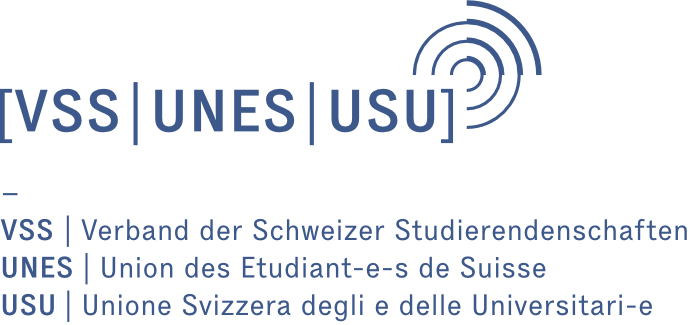Press Release
BERN – The European Students’ Union (ESU) fears that a recent referendum in Switzerland may have serious consequences for the education system. ESU fully supports the claims that have been made by the national union of students in Switzerland (VSS-UNES-USU). Together, these two organisations demand for education and research to be protected from the possible results of this policy and for Switzerland to continue its collaboration in developing a European Higher Education Area.
“This decision goes against the very foundation of the European Higher Education Area and could therefore have immense adverse effects for Switzerland. It is in the best interest of Switzerland to stay committed to the agreements of the European Higher Education Area. However, Switzerland is on a slippery slope of isolating its students and academics from the outside world. This could have devastating effects that would be difficult to reverse,” says Elisabeth Gehrke, Vice-Chairperson of ESU.
The Guillotine clause
Swiss authorities have in the past engaged in bilateral negotiations with the European Union on the country’s participation in EU treaties and programmes. In case only one of those agreements is terminated, the so-called “Guillotine clause” may trigger a process in which all of them are abolished.
A measure on immigration, such as the one that Swiss voters approved of on Sunday 9 February, could be incompatible with those agreements that are concerned with the free movement of persons. ESU is afraid that this may affect both the future of international and Swiss students.
Reciprocity and mobility
Approximately 2.600 Swiss students benefitted from Erasmus in 2011-2012 by gaining valuable international experience. Meanwhile, Switzerland hosted close to 2.900 foreign students and created an open and international culture in higher education. ESU fully agrees with VSS-UNES-USU that an impending suspension of any bilateral agreements, such as on Erasmus, creates an atmosphere of insecurity.
“Reciprocity is the condition needed for mobility. Mobility is also the condition needed for agreements and programmes in European research and education. By voting against free movement, Switzerland has shocked this fragile structure between both parties. Not only could this affect the Erasmus+ programme, but also the Swiss education system as a whole where it is key to have a strong international focus and cooperation with partner universities in joint research and mobility programmes,” says Lea Meister, International Officer of VSS-UNES-USU.
Mobility platforms, such as the one that Switzerland has in place with the European Union, contribute to the development of higher education institutions. It would affect all universities in Europe should those agreements be terminated and place restrictions on the Swiss education system.
For more information, please contact:
Elisabeth Gehrke, Vice-Chairperson

